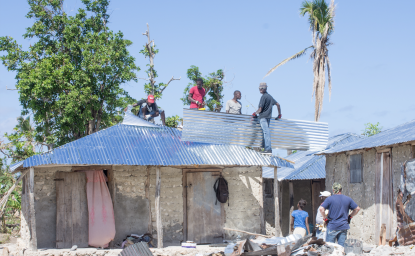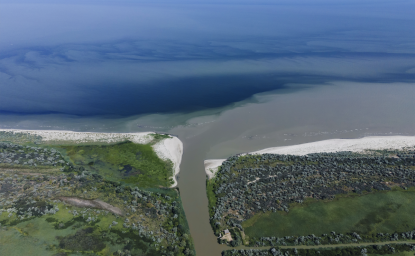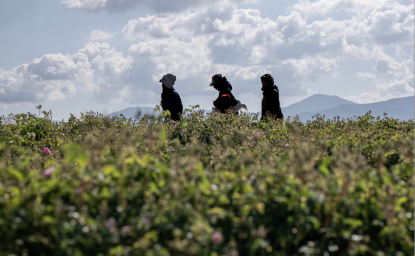ECSP Releases <i>Water Stories</i>, a Study of Small-Scale Water and Sanitation Initiatives
AUGUST 2007—Report Outlines Paths to Success for Community-Based Water and Sanitation Projects
AUGUST 2007—Report Outlines Paths to Success for Community-Based Water and Sanitation Projects
World Water Week kicked off yesterday in Stockholm, but more than one billion people still lack access to safe water and more than 2.6 billion live without basic sanitation. These numbers are rising, as a growing global population and more intensive water use further tax already-stressed water resources. Water Stories: Expanding Opportunities in Small-Scale Water and Sanitation Projects, a report by the Woodrow Wilson Center's Navigating Peace Initiative, examines the success of small-scale, community-based water and sanitation efforts.
In past decades, most funding for water and sanitation projects has gone into the construction of large-scale infrastructure projects such as dams and pipelines. These mega-projects have been criticized for a wide variety of shortcomings. Yet even if they functioned perfectly, they still would not be able to provide clean water and sanitation to many remote rural communities.
To address the limitations of large-scale initiatives, the international community has increasingly focused on small-scale and community-based projects, but more research and information on these methods is urgently needed. Water Stories assesses NGO and community-based water and sanitation efforts and explores how lessons learned from these projects can be effectively communicated and replicated worldwide.
The "Navigating Peace: Forging New Water Partnerships" initiative, launched by the Environmental Change and Security Program (ECSP) and funded by the Carnegie Corporation of New York, brings together experts and practitioners to reframe stale debates and generate fresh thinking on critical water problems. Water Stories sheds light on the challenges of improving access to safe water and sanitation and the possibilities afforded through innovation and cooperation. It recognizes that the provision of clean water and proper sanitation is not only a humanitarian and development issue, but also a security issue, as lack of access to these basic resources can increase the likelihood of conflict.
To learn more about ECSP's work on water and sanitation issues, visit: http://www.wilsoncenter.org/water.

The Environmental Change and Security Program (ECSP) explores the connections between environmental change, health, and population dynamics and their links to conflict, human insecurity, and foreign policy. Read more



